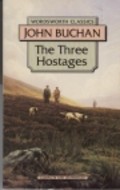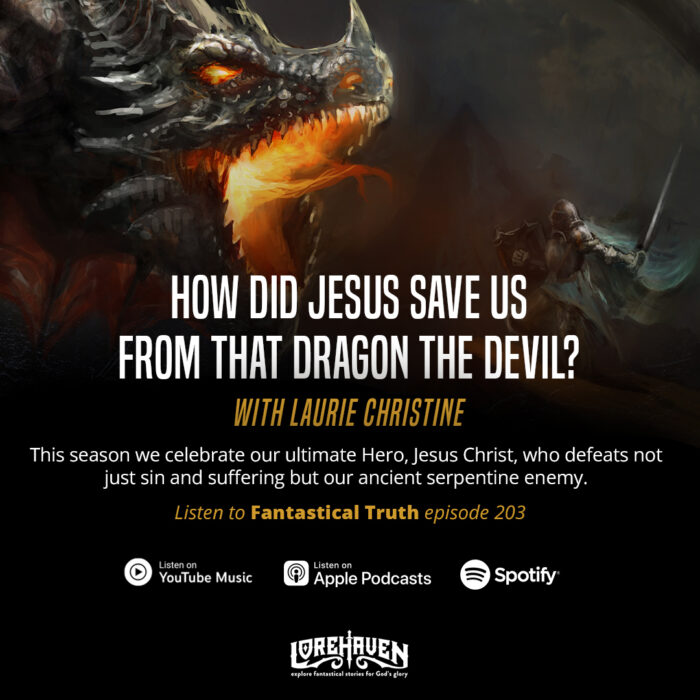John Buchan on A Fiction Author’s ‘cleverness’
 Politician, diplomat, Scotsman, Presbyterian, and writer of dozens of World War 1-era spy novels with occasional supernatural flair — that was John Buchan, who also, it seems, had a penchant for self-parody. That seems clear from this exchange early in his 1924 novel The Three Hostages, in which he satirizes thriller novelists who, he sarcastically suggests, are only employing cheap tricks.
Politician, diplomat, Scotsman, Presbyterian, and writer of dozens of World War 1-era spy novels with occasional supernatural flair — that was John Buchan, who also, it seems, had a penchant for self-parody. That seems clear from this exchange early in his 1924 novel The Three Hostages, in which he satirizes thriller novelists who, he sarcastically suggests, are only employing cheap tricks.
It was a cold night and very pleasant by the fireside, where some scented logs from an old pear-tree were burning. The doctor picked up a detective novel I had been reading, and glanced at the title page.
‘I can read most things,’ he said, ‘but it beats me how you waste time over such stuff. These shockers are too easy, Dick. You could invent better ones for yourself.’
‘Not I. I call that a dashed ingenious yarn. I can’t think how the fellow does it.’
‘Quite simple. The author writes the story inductively, and the reader follows it deductively. Do you see what I mean?’
‘Not a bit,’ I replied.
‘Look here. I want to write a shocker, so I begin by fixing on one or two facts which have no sort of obvious connection.’
‘For example?’
‘Well, imagine anything you like. Let us take three thing’s [sic] a long way apart —’ He paused for a second to consider — ‘say, an old blind woman spinning in the Western Highlands, a barn in a Norwegian saeter, and a little curiosity shop in North London kept by a Jew with a dyed beard. Not much connection between the three? You invent a connection — simple enough if you have any imagination, and you weave all three into the yarn. The reader, who knows nothing about the three at the start, is puzzled and intrigued and, if the story is well arranged, finally satisfied. He is pleased with the ingenuity of the solution, for he doesn’t realize that the author fixed upon the solution first, and then invented a problem to suit it.’
‘I see,’ I said. ‘You’ve gone and taken the gilt off my favourite light reading. I won’t be able to marvel at the writer’s cleverness.’
— John Buchan, from The Three Hostages
Right or wrong? Are writers who arrange story elements inductively, to be read deductively, really no big deal? Or is there a truly clever element to the craft that Buchan’s skeptical doctor hadn’t considered?



































Hmm, very interesting… Usually when I write, I have to know the beginning, the main points in the middle, and the end. Its during laundry, dishes, or cleaning that I begin to connect the dots. So maybe my story elements are inductive lol.
I was thinking along the same lines as Morgan. I suppose, in some ways, that’s what the quote says too. From unconnected to connected. From starting point to ending point.
I don’t think it’s easy though—not if it’s to be rendered believable and realistic. No, not easy at all!
Becky
I think that’s it, Becky, with the brief addition that a “dashed ingenious yarn” that actually includes character development and garners a reader’s emotional investment is much more difficult to write. Buchan’s character, here, seems only to be talking about purely plot-driven books whose sole function is to be a “shocker” that gives quick “thrills.”
Some of my favorite authors seem to use said method of writing. P.G. Wodehouse, Kenneth Robeson, and even some of the better written Doctor Who storylines start out with several seemingly unconnected things, which tie together by the end of the story. “Believable” is not what I would necessarily use as a standard as to whether the story is good or not. Carrol’s Through the Looking Glass is not believable, but no one would say it is badly written. I seem to agree with Steven that, when this writing method is applied for the sake of a quick thrill, it is “cheap.”
>Its during laundry, dishes, or cleaning that I begin to connect the dots. <
I don't write fiction: and you're GLAD. But when I have a problem to figure out, laundry, dishes and cleaning are what I do to give my mind the space to parse it. I might not even be deliberately thinking about the problem or situation, but somewhere in the back of it, little gears are cranking, and when I come back to the problem, progress has been made.
It's nice to know I'm not crazy, and other people do this, too.
I was watching “24” for awhile (actually, it was early on when I watched the first three seasons back-to-back on DVD while watching the fourth in progress), and some friends got into a discussion on whether or not it was getting ‘predictable.’ I said, “Depends on how you define it.”
So my guy friend brought the recorded episode (VHS) over to watch, and I teased him about it. I said, “Okay, I’ll call what’s going to happen in one episode.”
I called it five times. Then I said, “But remember, I’ve immersed myself in this thing. I know how the writers think, the actors behave, and the characters tick. I know the story world and its rules. After three seasons, I better have a pretty good idea of what to expect or I’m a poor audience.”
It’s the same with novels. If I read multiple books by one author, I know what to expect from that author. There may be five options for one particular scenario, but because it’s THAT author and THAT character and THAT situation, I can rule out at least three.
Anyway, that’s a long way of saying yes, I think – at least to an extent. While particulars might surprise even the writer, you don’t want to completely jar the reader, either. It may look cool to have Jane jump off the roof, but if Jane is scared of heights, she’s not going up, much less down, without significant motivation. Even if she’s not, she might jump off a 12 foot roof, but never a 40 foot roof. At least, not if she’s sane.
It doesn’t take way the writer’s skill. In some ways it adds to it.